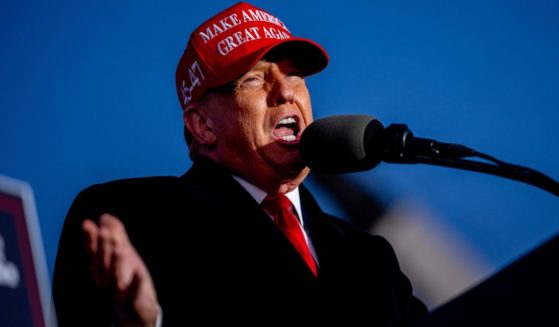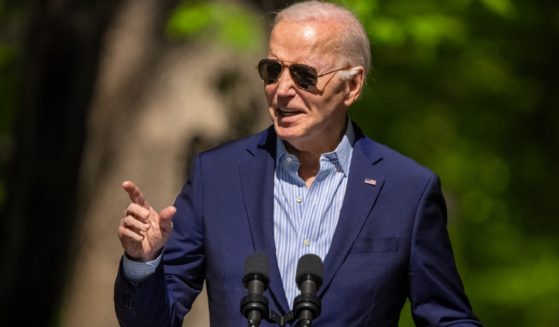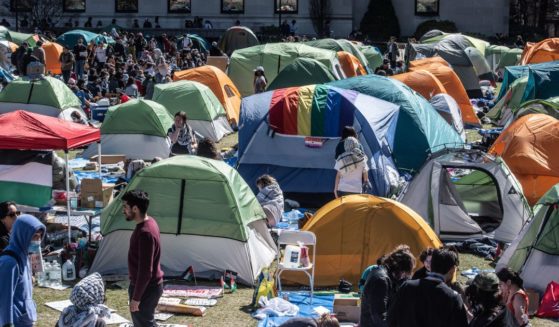Trump Announces a Clampdown on Federal Employees' Pay in 2019
President Donald Trump announced Thursday that he was cancelling a planned across-the-board 2.1 percent pay increase for federal workers, as well as a rise in locality pay.
The president related in a letter to House Speaker Paul Ryan that under existing law, all federal workers would receive a 2.1 percent cost-of-living boost as of Jan. 1, 2019.
Additionally, employees will receive an average locality pay increase of 25.7 percent, which is calculated based on where the worker lives. The locality pay increase alone would cost $25 billion, according to Trump.
The former businessman noted the federal law gives him the authority to make pay adjustments when he determines that “national emergency or serious economic conditions affecting the general welfare” are present.
“I view the increases that would otherwise take effect as inappropriate,” Trump wrote.
“We must maintain efforts to put our nation on a fiscally sustainable course, and federal agency budgets cannot sustain such increases,” said the president. “Accordingly, I have determined that it is appropriate to exercise my authority to set alternative across-the-board and locality pay adjustments for 2019.”
Trump further stated in his letter that future pay increases should be performance based, not guaranteed in a budget.
“Federal employee pay must be performance-based, and aligned strategically toward recruiting, retaining, and rewarding high-performing federal employees and those with critical skill sets,” Trump wrote.
According to CATO Institute economist Chris Edwards, the federal government employed approximately 2.1 million civilian workers in 2017 at a cost of $276 billion.
“In 2016, federal civilian workers had an average wage of $88,809, according the U.S. Bureau of Economic Analysis. By comparison, the average wage for the nation’s 114 million private-sector workers was $59,458,” Edwards wrote in a piece for DownsizingGovernment.org.
The Hill reported that Congress can override Trump’s pay freeze when it votes on the 2019 budget next month. The president can, of course, veto the legislation, but that could create the prospect of a government shutdown.
Trump’s 2019 budget submitted to Congress earlier this year called for a pay freeze, but the Senate Appropriations Committee included a 1.9 percent increase for federal workers. The House did not include such a bump.
Some Democratic lawmakers have spoken out in opposition to Trump’s pay freeze.
“For someone who claims to be a leadership maven, President Trump certainly gives the impression through his actions that he has no idea how to run an effective organization,” said House Minority Whip Rep. Steny Hoyer of Maryland.
“Cutting federal pay is not the way to run the best government possible or to recruit and retain the most talented Americans to serve their fellow countrymen,” he added.
Rep. Eric Swalwell of California tweeted that Trump “screwed” federal employees by cutting their cost of living increase.
To the hard-working federal employees Trump just screwed by cutting pay — the folks who run our parks, protect our communities, & serve our veterans: YOU MATTER. If billionaires can get tax cuts, you should get a COLA. You work hard for America & that should add up to something.
— Rep. Eric Swalwell (@RepSwalwell) August 30, 2018
“To the hard-working federal employees Trump just screwed by cutting pay — the folks who run our parks, protect our communities, & serve our veterans: YOU MATTER. If billionaires can get tax cuts, you should get a [cost of living adjustment]. You work hard for America & that should add up to something,” he wrote.
Republican Rep. Barbara Comstock, whose northern Virginia district includes many federal workers, also spoke out in opposition to the move.
“We cannot balance the budget on the backs of our federal employees and I will work with my House and Senate colleagues to keep the pay increase in our appropriations measures that we vote on in September,” she said.
The federal budget deficit is expected to come in at just under $800 billion for Fiscal Year 2018, up from $665.8 billion in 2017. Projections have the deficits increasing to over $1 trillion by FY 2019.
The rising numbers are attributable to growth in entitlement spending for Social Security, Medicare, and Medicaid, as well as the $1.3 trillion bipartisan spending bill Trump signed into law in March. The bill increases discretionary spending for military and domestic programs by $300 billion per year for the next two years.
The Republican tax law passed in December is also blamed, though Trump has argued in the long term, that increased economic growth will continue to lead to more jobs and ultimately higher revenues to the federal treasury.
Trump’s pay freeze does not effect members of the military, who are scheduled to receive a 2.6 percent pay increase.
Truth and Accuracy
We are committed to truth and accuracy in all of our journalism. Read our editorial standards.












